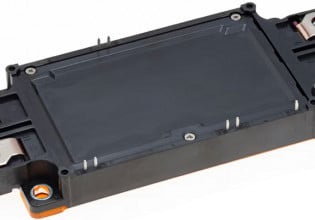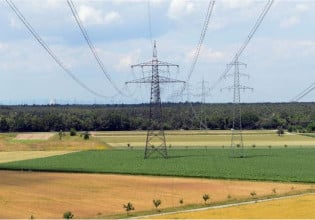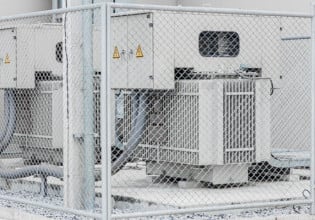Stepping Driver IC Lowers Motor Noise and Vibration
Toshiba Corporation's Storage & Electronic Devices Solutions Company announced the launch of the TB67S209FTG, a stepping motor driver with an architecture that lowers noise and vibration during motor operation. Mass production is slated to begin at the end of December. These driver ICs offer step resolutions of Full, Half, Quarter, 1/8, 1/16, and 1/32. Other features include: Selectable Mixed Decay (SMD), a current control method for efficient motor operation; Built-in error detection functions (thermal shutdown, over-current shutdown, and under voltage lock out); Built-in error detection signal output function; and Supports the power-on sequence by the single power drive.
High-speed, high-performance motor control is essential for printers, office automation equipment, banking terminals such as ATMs, cash dispensers, amusement machines, and home appliances. Recent customer demand for stepping motor control have centered on demands for lower noise and vibration, as equipment is used in increasingly diverse environments.
The key to reducing noise and vibration in a stepping motor is highly efficient operation with accurate current control. Adoption of Selectable Mixed Decay (SMD), a current adjustment function, allows the new IC to reduce noise and vibration by selecting the appropriate SMD setting suitable for the motor.
Use of Toshiba’s state-of-the-art high voltage analog process also improves performance, as it allows the driver to achieve a 50V / 4A maximum rating and integrates low on resistance MOSFETs for the motor output to operate at 0.49Ω (upper + lower, typical).
Main features include: 1. Low noise and vibration; High-resolution 1/32 step (max.) motor control and the new motor control architecture with SMD lower noise and vibration. 2. Less heat generation; Heat generation is reduced by low on resistance (0.49Ω (upper + lower, typical)). 3. Small package; Packaging in a small QFN package will allow customers to reduce heat problems and simplify PCB design patterns for heat dissipation. It will also realize an affordable solution in terms of space and cost. 4. Built-in error detection circuits; Thermal shutdown, over-current shutdown and under voltage lock out circuits contribute to equipment safety and reliability.






